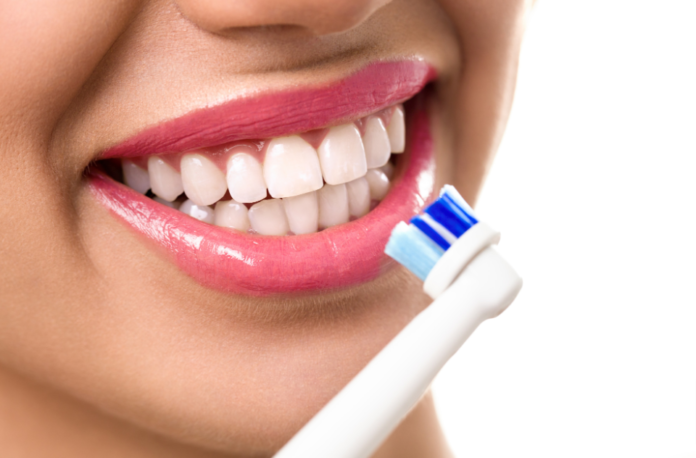Having a dazzling smile is something that everyone should be proud of. Unfortunately, not many people take the time to properly care for their teeth. Proper teeth cleaning is essential for preventing cavities, gum disease, and other dental problems. That’s why we’ve compiled this list of the top 6 teeth cleaning tips from a dentist to help you get the best smile possible. Read on to learn more about how to keep your teeth healthy and sparkling!
1) Why good oral hygiene is important
Maintaining good oral hygiene is essential for a healthy and dazzling smile. Neglecting proper oral care can lead to a host of dental problems, including cavities, gum disease, and bad breath. When we don’t take care of our teeth, we put ourselves at risk for painful and costly dental procedures down the road. That’s why it’s important to prioritize oral hygiene and make it a part of our daily routine.
Practicing good oral hygiene starts with regular brushing and flossing. Brushing your teeth at least twice a day removes plaque and food particles that can cause decay and gum disease. It’s important to use the right technique and brush all surfaces of your teeth, including the gumline and the back teeth. Alongside brushing, flossing daily is crucial for removing plaque and food debris from between your teeth and along the gumline.
In addition to brushing and flossing, using mouthwash can provide extra protection against bacteria and freshen your breath. Mouthwash reaches areas that brushing and flossing may miss, helping to reduce plaque and gingivitis. However, it’s important to choose a mouthwash that is alcohol-free and contains fluoride for maximum benefits.
It’s not just about what we do at home – regular dental check-ups and cleanings are also essential for good oral hygiene. Dentists can identify and treat dental issues early on, preventing them from progressing into more serious problems. Professional cleanings remove stubborn plaque and tartar that cannot be removed through brushing alone, keeping your teeth healthy and free from decay.
Lastly, maintaining a healthy diet can contribute to good oral hygiene. Avoiding sugary and acidic foods and beverages helps prevent tooth decay and enamel erosion. Instead, opt for a diet rich in fruits, vegetables, and dairy products, as they contain essential nutrients for healthy teeth and gums.
2) Brushing technique tips
Brushing your teeth may seem like a simple task, but there is actually a technique to ensure that you are effectively cleaning all surfaces of your teeth. Here are some tips from a dentist on how to brush your teeth properly.
First, choose a soft-bristled toothbrush that is the right size for your mouth. A toothbrush with a small head and soft bristles allows you to reach all areas of your mouth easily without causing damage to your gums.
Next, hold your toothbrush at a 45-degree angle to your gums. Use short, gentle strokes to clean the outer surfaces of your teeth, focusing on two to three teeth at a time. Be sure to brush the front, back, and top surfaces of each tooth.
Don’t forget about your gumline! Gently brush along the gumline in a circular motion to remove any plaque or debris that may have accumulated there.
After brushing your teeth, don’t rinse your mouth with water immediately. Instead, spit out the excess toothpaste and let the fluoride from the toothpaste remain on your teeth for added protection.
Remember to replace your toothbrush every three to four months or when the bristles become frayed. By following these brushing technique tips, you can ensure that you are effectively cleaning your teeth and maintaining a healthy smile.
3) Importance of flossing
Flossing is often an overlooked aspect of oral hygiene, but its importance cannot be emphasized enough. While brushing helps to remove plaque and debris from the surfaces of your teeth, flossing is necessary to clean the areas between your teeth and along the gumline. These are places where your toothbrush simply cannot reach.
By flossing daily, you are able to remove food particles and plaque that may have accumulated in those hard-to-reach areas. This helps to prevent the formation of cavities, gum disease, and bad breath. Flossing also stimulates the gums, promoting better blood circulation and keeping them healthy.
Additionally, flossing can save you from expensive dental procedures in the long run. By maintaining proper oral hygiene through flossing, you reduce the risk of developing more serious dental issues that require extensive treatment.
Remember to be gentle when flossing and to use a clean section of floss for each tooth. If you find traditional floss difficult to use, consider using floss picks or water flossers as an alternative. Regardless of the method, the important thing is to make flossing a regular part of your oral care routine for a healthy and dazzling smile.
4) The benefits of using mouthwash
Using mouthwash is a great addition to your oral hygiene routine. Not only does it leave your breath fresh and minty, but it also provides a number of benefits for your dental health.
First and foremost, mouthwash helps to kill bacteria and prevent plaque buildup. It reaches areas that brushing and flossing may have missed, giving you a thorough clean and reducing the risk of gum disease and tooth decay. Mouthwash can also help to freshen your breath, especially if you have bad breath due to certain foods or conditions like dry mouth.
Another benefit of using mouthwash is that it can help to remineralize and strengthen your tooth enamel. Many mouthwashes contain fluoride, which is a mineral that helps to protect against cavities and strengthens your teeth. It can also help to prevent sensitivity by protecting the exposed dentin.
When choosing a mouthwash, look for one that is alcohol-free and contains fluoride for maximum benefits. Remember to follow the instructions on the label and use mouthwash as directed. Incorporating mouthwash into your daily oral hygiene routine can make a big difference in the overall health and appearance of your teeth and gums.
5) Foods to avoid for healthy teeth
When it comes to maintaining a healthy and dazzling smile, it’s not just about what you do, but also about what you don’t do. Certain foods can wreak havoc on your teeth, causing decay and damage. To keep your teeth healthy, it’s important to be mindful of the foods you consume.
One of the biggest culprits for tooth decay is sugary foods and drinks. Sugar feeds the bacteria in your mouth, leading to the production of acids that erode tooth enamel and cause cavities. So, it’s best to limit your intake of sugary treats like candy, soda, and desserts.
Acidic foods and drinks should also be consumed in moderation. Acidic substances can wear away your tooth enamel, leaving your teeth vulnerable to decay and sensitivity. Examples of acidic foods and drinks include citrus fruits, tomatoes, pickles, and carbonated beverages. If you do consume these items, try rinsing your mouth with water afterward to minimize the impact on your teeth.
Sticky foods like caramel and dried fruit can cling to your teeth, providing the perfect breeding ground for bacteria. This can lead to cavities and gum disease, so it’s best to avoid these sticky snacks or brush your teeth immediately after consuming them.
Finally, it’s important to be mindful of how often you snack throughout the day. Frequent snacking increases the amount of time that your teeth are exposed to acids and sugars, increasing the risk of tooth decay. If you do snack, opt for healthy choices like fruits, vegetables, and nuts.
By being mindful of the foods you eat and making healthier choices, you can protect your teeth and maintain a dazzling smile for years to come.
6) Regular dental check-ups and cleanings
Regular dental check-ups and cleanings are essential for maintaining optimal oral health. While daily brushing and flossing are crucial, they can’t always reach every nook and cranny in your mouth. That’s where your dentist comes in.
By visiting your dentist regularly, you can catch any dental issues early on before they become major problems. Dentists have the knowledge and tools to detect and treat issues such as cavities, gum disease, and oral cancer. They can also perform professional cleanings to remove plaque and tartar buildup that regular brushing can’t fully remove.
During your check-up, your dentist will examine your teeth, gums, and overall oral health. They may take X-rays to get a more detailed look at your teeth and jawbone. If any issues are detected, they can develop a personalized treatment plan to address them.
Regular dental check-ups and cleanings not only prevent serious dental problems but also help you maintain a dazzling smile. Your dentist can provide advice on proper oral hygiene techniques, recommend the right oral care products for you, and address any concerns or questions you may have.
So don’t neglect your dental health. Schedule regular check-ups and cleanings with your dentist to keep your teeth healthy, your smile sparkling, and your overall well-being in top shape. Looking for a dentist in the Bay area, Los Gatos California dentist Dr. Prawat is one to check out.























